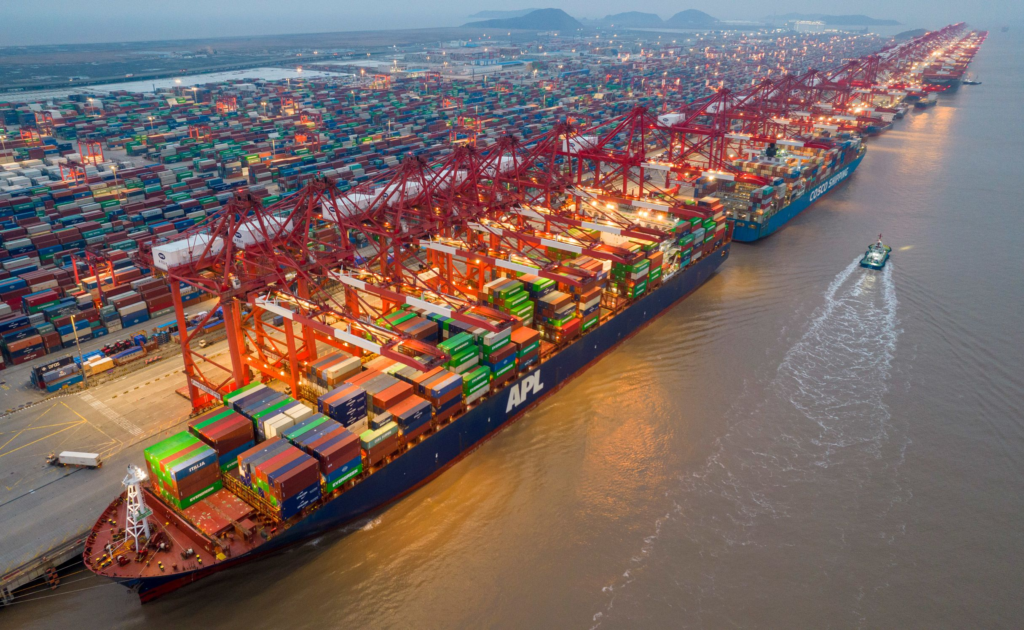
The closure of ports responsible for around 60% of U.S. shipping traffic would have catastrophic and far-reaching impacts on various economic sectors.
The Ever Given stuck in the Suez Canal, the ongoing chip shortage, and hundreds of ships idling in the Pacific—all of these scenarios have conditioned Americans to navigate supply chain disruptions. Now, they may be facing yet another major crisis: about 45,000 dockworkers at 36 East and Gulf Coast ports could strike as early as 12:01 AM ET tomorrow if a new contract isn’t reached today.
Closing ports that handle around 60% of U.S. shipping traffic would lead to severe and widespread damage across various economic sectors, including retail, automotive, and agriculture. According to JPMorgan analysts, a work stoppage could inflict up to $5 billion in economic losses daily. Freight costs have already surged by as much as 20% in anticipation of the strike, and these increases will likely be passed on to consumers as higher prices on store shelves.
What Do the Dockworkers Want?
The dockworkers, who handle the loading and unloading of containers critical to international trade, are advocating for higher wages and protections against the automation of port operations.
The Pay Issue: The International Longshoremen’s Association, representing the dockworkers at East and Gulf Coast ports, is standing firm on a demand for a 77% pay increase over six years. While this may seem like a steep request, workers argue that wages for veteran dockworkers have only risen 11% since the last six-year contract, while inflation has surged by 24% during that time. Currently, the top wage for union dockworkers is $39/hour.
Automation Concerns: Dockworkers, much like Hollywood actors, view recent technological advancements as a significant threat to their jobs. Union president Harold Daggett has emphasized that protecting human jobs from automated systems is a “signature issue” for the union.
Big Picture: If a strike is resolved within a week, experts predict minimal economic damage. However, prolonged disruptions could lead to substantial chaos, shortages, and price increases. On a positive note, retailers have been preparing for a potential strike for months, and many may have already shipped your holiday gifts to the U.S.

No responses yet